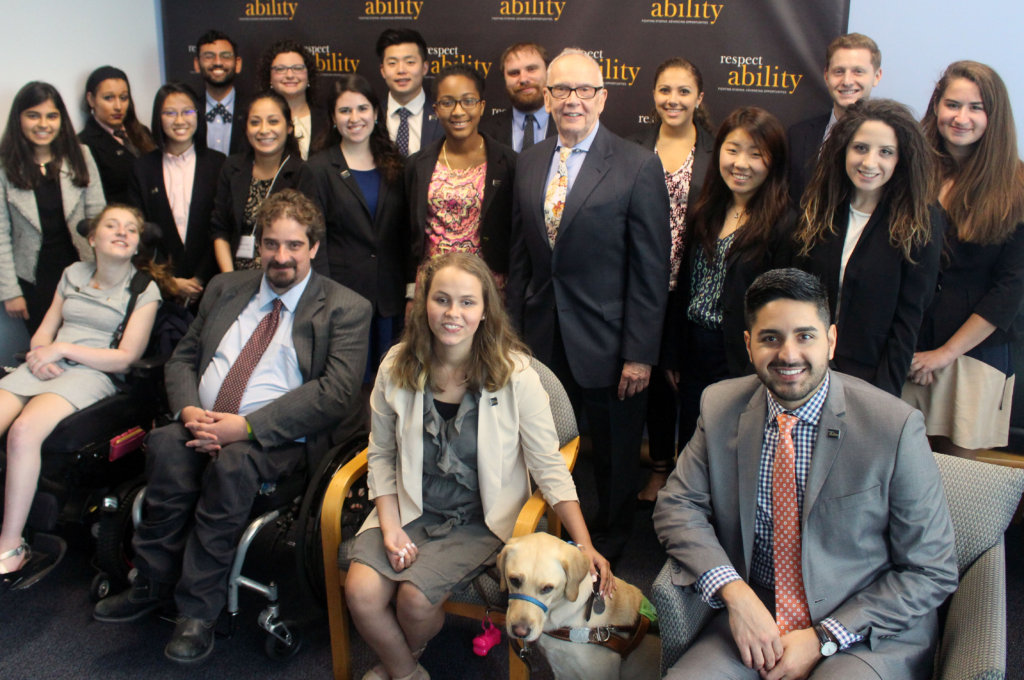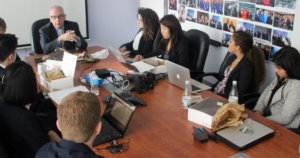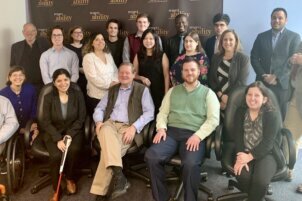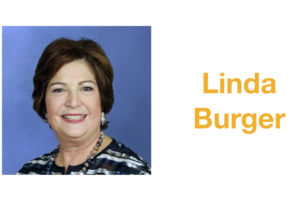A Conversation with National Disabilities Rights Network’s Curt Decker

Curt Decker with RespectAbility Fellows and Staff
Rockville, Md., June 30 – “Disability policy – we need to make sure that our policies and good intentions are followed up with good practices and actions,” advised Curt Decker on a bright Wednesday afternoon.
Serving as the current Executive Director of the National Disabilities Rights Network (NDRN), the largest non-governmental enforcer of disabilities rights, Decker is an integral member of the disability rights movement. As a passionate and motivating speaker, he delivered great insight and important information about the support systems presently in place for people with disabilities experiencing injustice.
Decker’s career in public interest law was shaped by his formative experience in VISTA work. His involvement subsequently extended to the disabilities sector, where he began working in the Protection and Advocacy (P&A) System for Individuals with Developmental Disabilities, created by Congress. P&A agencies provide legal representation, advice, negotiation and administrative hearings, individual litigation and advocacy for all individuals with disabilities; they are necessary to ensure that federal statues and laws are enforced vigilantly through investigating institutions across the United States. He emphasized there is a need to continue visiting, questioning and observing if the laws and regulations are working with stakeholder populations.
Decker further highlighted NDRN’s unique roles in its cross-disability approach, adding additional programs within the P&A system (e.g. assistive technology, assisted living, etc.) and partnering with different organizations to advocate for funding from Congress.
“There have been a lot of unintended consequences from good intentions, in relation to disability legislation and inclusion”

Curt Decker speaking to RespectAbility Fellows
Decker emphasized the importance of creating disabilities legislation that aligns with inclusionary and just practices. In the past, disability advocates attempted to facilitate what were thought of as good ideas at the time that were then met with poor tactics and execution: the segregation of people with disabilities into institutions, the provision of a sub-minimum wage for people with disabilities in workplaces and the creation of sheltered workshops. As a result, he advised that the consequences of actions and laws must be understood before they are set into action.
For example, if a state were to close big institutions that were housing people with disabilities, it is important to question: 1) if the individuals with disabilities will be integrated into the community or be put in a disparate community 2) if integration is the goal, then ensuring that the community is equipped with apt and sufficient resources to support the needs of people with disabilities.
Asking these questions is vital in facilitating good policy practices, and RespectAbility Fellows would like to thank Mr. Decker for sharing his thoughtful and fascinating anecdotes with us!
JOIN OUR TEAM!
RespectAbility is a nonprofit organization fighting stigmas and advancing opportunities for and with people with disabilities. Learn more about the National Leadership Program and apply for the next cohort! Contact BenS@RespectAbility.org for more information.
ALL FELLOWSHIP OPPORTUNITIES
- PUBLIC POLICY/EMPLOYMENT
- COMMUNICATIONS/DIVERSITY IN FILM & TELEVISION
- NONPROFIT MANAGEMENT
- COMMUNITY OUTREACH/GRASSROOTS ORGANIZING
- JEWISH INCLUSION







